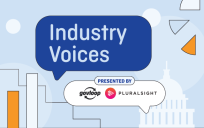Colleen Stanley teaches emotional intelligence to sales professionals and has one of the best plain English definitions of emotional intelligence. What are you feeling, why are you feeling this emotion and how does it impact how you show up? Since interacting with others who are different from us is an emotional experience, emotional intelligence has to be part of the conversation on how to build inclusive workplaces.
Thought leaders Jorge Cherbosque, Lee Gardenswartz, and Anita Rowe have developed one of best models for developing high emotional intelligence as it relates to integrating workplace differences.
Knowing Ourselves
Do you know what makes you tick? Do know what ticks you off? Do you know your biases and hot buttons? Do you know how you can be a hot button to others?
Leadership consultant Jim Boneau talks about knowing who you are in the workplace. Are you present with others? Do you see life through their eyes? Do you share yourself with colleagues? Is service and sacrifice a habit for you?
Make Ambiguity Your Ally
Do you have the ability to manage the discomfort with differences by showing patience in not trying to achieve a quick fix? Maybe you need to confront a colleague about a difference. Step back and ask yourself is this the right time and place. Make peace with the ambiguity. Pick your spots carefully but don’t ignore them forever.
Be Your Own Change Master
Do you understand that change as a result of workplace differences brings gains and losses? More than one language spoken in the workplace may mean your language has to take on another role. At the same time, an opportunity exists for you to learn a new language. More than one generation in the workplace, you may have to step back and identify how your generational differences are perceived by older or younger colleagues.
Managing Self-Talk
Can you recognize and manage internal messages in a healthy way? For example, your difference may not be fully embraced in the workforce. Your inner critic may say they are doing this to you on purpose. You may be thinking I don’t know what to do but I don’t want to look like a failure.
On the other hand, your inner champion could be saying I am up for the challenge. I may make mistakes but I will try to educate my colleagues about my differences any way.
Understanding the Cultural Whys Behind Behavior
Do you see different cultures not as a problem but as a unique set of rules for problem solving and relating to others? Do you know the thumbs up, peace and OK hand gestures while acceptable in Western culture can be offensive in other parts of the world?
Seeing the Benefits and Limits of Your Own Reality
Do you have the ability to reframe your cultural reality in order to understand the cultural realities of others? Do you know that different cultures have different rules about such things as eye contact, handshakes and personal space? Could you make adjustments for these behaviors in cultures unlike your own?
Transcend Your Own Perspective through Empathy
Can you be genuinely receptive of another person by suspending judgement and assuming a position of curiosity regarding their differences? As a woman, maybe you were falsely accused of getting your job due to your gender. You can now empathize with a man who was falsely accused of getting his job due to his race.
Building a Diverse and Inclusive Workplace
Can you accept responsibility for creating a safe and healthy emotional climate by encouraging and expecting workplace differences? Are you at your best at work when others are included in your efforts? Do you seek out different views in your workplace even if it means your views are seen as more vulnerable? Do you understand that the quest for inclusion brings conflict but if managed positively, can bring incredible results?
Sounds daunting? It is. Inclusion is hard work, a contact sport. You will not get better at inclusion standing on the sidelines. If you do, you may discover that a volatile, uncertain, changing and ambiguous world has passed you by.





I am interested in the training years ago we used to have our own here in DSHS emotional intelligence class was great! But just like everything else class training went away! I would like to test your training and see if I can introduce it to my Cultural Competence workgroup, let me know who I need to talk to. Es
First of all, thank you for your comments. I would be happy to send you my emotional intelligence training by email. Another alternative would be providing the training to your workgroup directly by teleconference. Just let me know. You can email me at richard.regan@irs.gov.
I’m a little tired of all the hammering on EI. I read of a study that showed that EI is _inversely_ correlated with performance on technical tasks. It’s easy to understand why: devoting mental resources to emotions diverts resources from tasks involving things, like programming or engineering, etc.
BTW, I’m autistic, so my EQ is very low and unchangeable. When I’ve had to focus on extracting social information, I became very tired as that ability is very limited. I’m also a first-class geek: coworkers come to me with questions about programming, math and statistics. That’s on top of a Ph.D. in Economics.
You make excellent points and I appreciate you bringing this perspective to the table. My daughter works with children with autism and she teaches me something new about this condition every time we chat. I see autism as just another difference we have to recognize and embrace in the workplace to make sure everyone can meet their full potential.